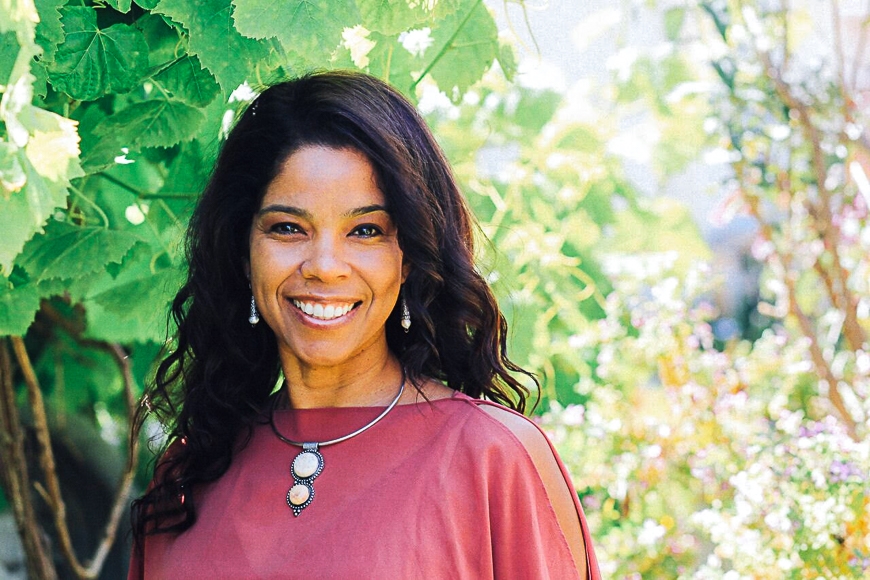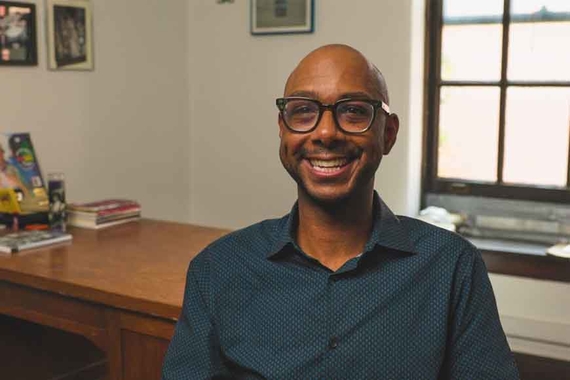The Future of Radical History: Gaye Johnson Delivers David Noble Lecture in His Honor
April 9, 2019
7:00–9:00 PM
Walter Library, Room 402
Attend in person or join us via the live stream.
“David Noble watched the world change for more than half a century and turned around and taught the changes to students at the University of Minnesota,” –The Minnesota Daily
In 2009, professor and former chair of American studies David Noble retired after 56 years at the University of Minnesota. He was a beloved scholar and would be missed at UMN, but would live on in his work and the campus community. The department implemented an annual lecture series in 1996, in his honor. Each lecture features a groundbreaking scholar of American studies who offers fresh perspectives on history and culture. This year’s lecture will be delivered by one of his former students, Gaye Theresa Johnson. It is the 23rd annual David Noble Lecture and the first since his passing in late March last year. The lecture will take place on April 9, 7:00-9:00 pm in room 402 of Walter Library.
Memories of Minneapolis
Johnson (PhD '04, American Studies) is an associate professor of Chicana & Chicano studies and African American studies at UCLA. David Noble was her formal dissertation advisor and a steadfast mentor who welcomed her and his other students into his home and life. Part of her lecture will be a reflection on her experiences in the American studies department and the guidance of Noble and his work.
One of the greatest lessons he taught her was “the truth and the beauty of humanity and the possibilities for those qualities in the academy.” This meant that being in the academy gives scholars the ability to study and see the beauty in people through research. That rang true in Johnson’s experience; her fondest memories in graduate school include the cohort of people in her PhD program: friends, faculty, mentors, staff, and the community around it. She says, “because we were so far north and away from everything that most of us had experienced before studying at UMN, our friendships and professional relationships were really special and have endured.” For example, she recently wrote a book with Alex Lubin, another student in her cohort and now a professor at the University of New Mexico, titled Futures of Black Radicalism. American Studies at UMN was, “a great place to learn, a rigorous site of inquiry, and was intellectually foundational for me, but it was also a very instructive place about how to be principled in the academy.”
Changes in History
Being invited to deliver the David Noble Lecture is “a singular honor in my career, not least because of everything that David gave us all as a scholar,” Johnson says. Her talk is titled “The Future of Radical History: Democracy, Love, and the Metaphor of Two Worlds.” It is a turn-of-phrase and tribute to two of Noble’s books, The End of American History and Death of a Nation, in which he discusses two separate foundational changes in American cultural exceptionalism and the structure of American history.
The End of American History explains the genocide of Indigenous peoples during the colonization of the United States. That was a time where there was a civilizing narrative of two different worlds, the old and the new. The old world recognized diversity among people and life before colonization. The new world assumed there were not people on the land before colonization. The pilgrims felt there was “endless opportunity” that made it seem like it was their place to take the land and life they arrived on.
Death of a Nation speaks to a foundational change in cultural exceptionalism that took place in the 1940s. Exceptionalism creates a hierarchy of socio-economic class, race, nationalism and many other demographics to think they are the elites in a homogeneous culture. The book explains the end of American history as we knew it told from a white colonial point of view and shifting to the views of diverse people and cultures we hear from now in history.
Hope for a Brilliant Future
The key takeaways Johnson will discuss are the brilliance of Black radical traditions and social movements today. The brilliance of Black radical tradition references the ways that Black people have come to maneuver white supremacy in their everyday lives and the ways they have brought joy to replace the hate. “It's a way of knowing, and a way of being that is about simply more than oppression under the history of white supremacy,” Johnson says, “but it's also about joy, brilliance, resistance, love, and struggle.”
We see a more progressive future in these topics because they encourage people to believe in one another and value the experiences of struggle and affirmation. “I hope that the impact of my lecture will be to remind us of the generative and always-regenerating collectivity and strength that we have to meet the particular challenges that we face today.”
This story was written by an undergraduate student in CLAgency. Meet the team.



